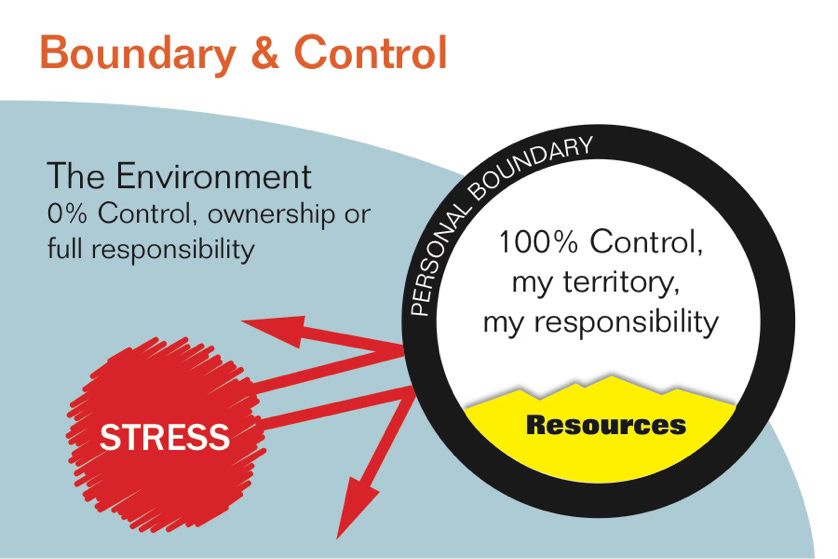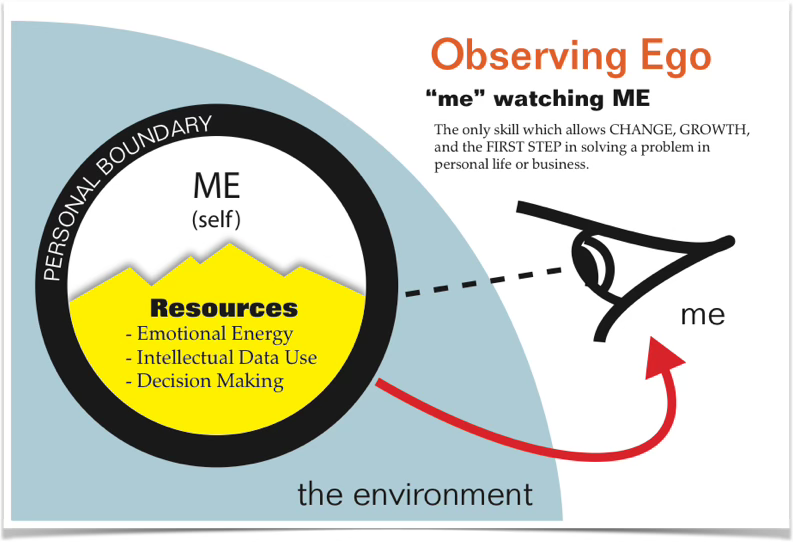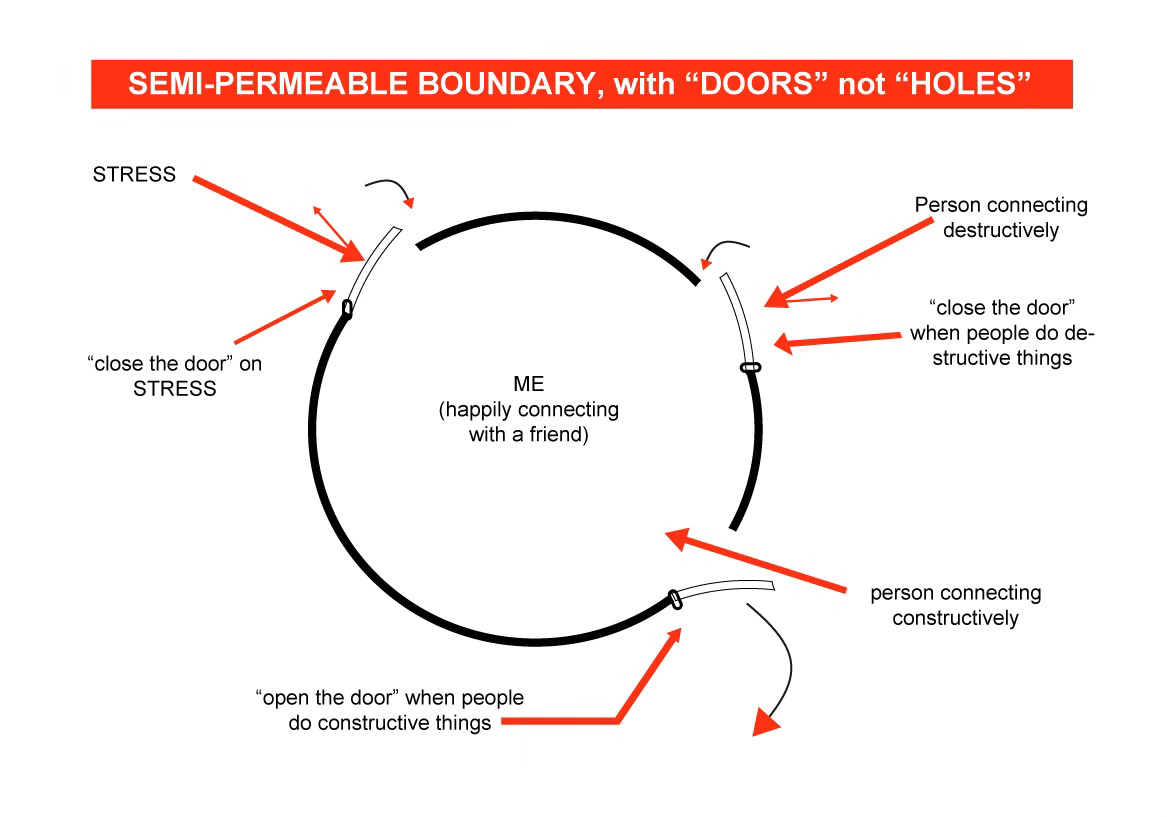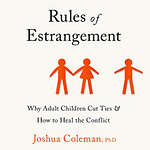Join me for my next live video in the app, by becoming an Upgraded member:
SHOW NOTES:
In this conversation, Dr. Paul explores the concept of personal boundaries, emphasizing their significance in psychology and interpersonal relationships. He discusses the anatomy of boundaries, describing them as shields against stress, and introduces the ideas of holes, walls, and doors as different boundary constructs. The conversation highlights the importance of recognizing and addressing boundary issues to foster emotional health and resilience.
Dr. Paul continues to elaborate on the concept of boundaries, focusing on their protective function against stress. They define stress in a unique way, distinguishing between the randomness of nature (e.g., natural disasters, traffic) and interpersonal stress caused by relationships with others.
Key Points Discussed:
1. Boundaries as Shields: Dr. Paul likens boundaries to shields that protect individuals from stress, emphasizing that stress is primarily a result of interactions with others rather than external uncontrollable factors.
2. Definition of Stress: Dr. Paul excludes natural phenomena from their definition of stress, stating that these events are neither harmful nor beneficial—they are random. Instead, Dr. Paul asserts that stress arises from interpersonal dynamics, as people can intentionally cause stress for one another.
3. Types of Stress: Dr. Paul identifies two general categories of stress, which is negative emotional energy coming from outside our personal boundary:
- Hurt: Caused by harm from others, leading to feelings of anger by way of neutralizing a similar opposite positive emotional energy of self-esteem called Well-being.
- Loss: Associated with losing resources or the threat of loss, which can lead to anxiety by way of neutralizing a similar opposite positive emotional energy of self-esteem called Confidence.
See diagram again:
4 Types of Self-esteem:
- Well-being - a positive emotional energy of nurturing and nourishment that is maternal and is fulfilling of getting our needs met, like oil in an engine.
- Confidence - a positive emotional energy of action toward goals that is paternal and is the capacity to tolerate risk, change, loss or uncertainty and still function, like gasoline is to an engine.
See diagram once more:
5. Boundary Integrity or Boundary as a “Tank”: When boundaries are solid, they serve to shield against stress. However, if there are holes or weaknesses in these boundaries, stress can penetrate easily, leading to feelings of helplessness and depression.
6. Consequences of Boundary Holes: The speaker notes that when stress breaches an individual's boundaries, it can create a sense of helplessness, further emphasizing the importance of maintaining strong, intact boundaries.
When there are holes bust open against our will and over our protest (saying “no”), it is more than a stress. It is a “trauma,” giving rise to the state from PTSD, called the “hyperarousal” phase of PTSD, where we are oversensitive, overwhelmed, and “triggered.”
Holes in the boundary cause suffering, an attempt to control the uncontrollable where we burn energy, time, money and effort and wasting them on that which we don’t control the environment:
Another, slightly better anatomical feature of boundaries are “walls”:
7. Healing of Boundary Walls (Scars):
You're more protected against future stress but more isolated and “starving” for interpersonal interactions such as learning, collaboration, communication, friendship and love. Like the “numbing” phase of PTSD.
8. Advantages of Boundary Doors:
Boundary doors are the most mature and virtuous anatomy of a boundary and are the opposite of narcissistic pathology, most resistant to the narcissism of others they are dynamic and adaptive to environments like the other two features are not, and which are merely static.
Doors are neither holes, nor walls. Instead they open to constructive, win/win interactions with others but close to destructive, win/lose interactions with others. They can even alternate between the two with the same person, a concept called negotiation (with good politics.)
Takeaways
Boundaries are crucial for emotional health and relationships.
Interpersonal relations primarily cause stress.
A solid boundary acts as a shield against stress.
Holes in boundaries can lead to feelings of helplessness.
The word 'no' is essential for maintaining boundaries.
Walls can form as protective scars from trauma.
A door in the boundary allows for adaptive interactions.
Self-discipline is key to managing personal boundaries.
Well-being and confidence are vital for healthy boundaries.
Understanding boundaries can lead to personal growth and maturity.
Titles
The Power of Personal Boundaries
Understanding the Anatomy of Boundaries
Healing Through Boundaries
Sound Bites
"A boundary is a shield against stress."
"Well-being blocks the stress of hurt."
"Confidence is the antidote for anxiety."
"The word 'no' helps fix boundary holes."
"A wall is a scar on a boundary."
"A door in the boundary is adaptive and dynamic."
"You become a leader with self-discipline."
Chapters
00:00 Introduction to Personal Boundaries
04:55 Understanding Boundaries as Psychological Constructs
11:40 The Anatomy of Boundaries: Holes, Walls, and Doors
26:18 Healing and Strengthening Boundaries




















